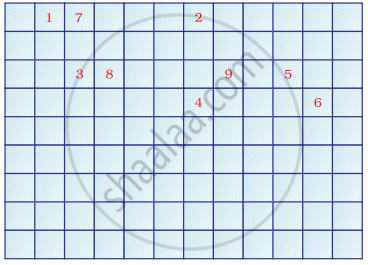Advertisements
Advertisements
Question
Which of the following have inert gases 2 electrons in the outermost shell.
Options
He
Ne
Ar
Kr
Solution
He
APPEARS IN
RELATED QUESTIONS
An atom has the electron structure of 2, 7.
(a) What is the atomic number of this atom?
(b) To which of the following would it be chemically similar?
7N, 15P, 17Cl, 18Ar
(c) Why would you expect it to be similar?
The non-metal A is an important constituent of our food and most of the fuels around us. A forms two oxides B and C. The oxide B is poisonous whereas oxide C causes global warming.
(a) Identify A, B and C.
(b) To which group of periodic table does A belong?
(c) Name another element which is placed in the same group as A.
Two elements X and Y belong to group 1 and 2 respectively in the same period of periodic table. Compare them with respect to:
(i) the number of valence electrons in their atoms
(ii) their valencies
(iii) metallic character
(iv) the sizes of their atoms
(v) the formulae of their oxides
(vi) the formulae of their chlorides
What was the basis of the earliest attempts made for classification and grouping of elements?
Answer the following question.
Write the name, symbol, and electronic configuration of an element X whose atomic number is 11.
What is the atomic number of elements of period 3 and group 17 of the Periodic Table?
An element X from group 2 of the Periodic Table reacts with Y from group 17 to form a compound. Give the formula of the compound.
Consider the following elements 20Ca, 8Or 18Ar, 16S, 4Be, 2He
Which of the above elements would you expect to be in group 16 of the Periodic Table?
The atom of an element has electronic configuration 2, 8, 7. To which of the following elements would it be chemically similar?
Complete the following cross word puzzle
Across:
(1) An element with atomic number 12.
(3) Metal used in making cans and member of Group 14.
(4) A lustrous non-metal which has 7 electrons in its outermost shell.
Down:
(2) Highly reactive and soft metal which imparts yellow colour when subjected to flame and is kept in kerosene.
(5) The first element of second Period
(6) An element which is used in making fluorescent bulbs and is second member of Group 18 in the Modern Periodic Table
(7) A radioactive element which is the last member of halogen family.
(8) Metal which is an important constituent of steel and forms rust when exposed to moist air.
(9) The first metalloid in Modern Periodic Table whose fibres are used in making bullet-proof vests

